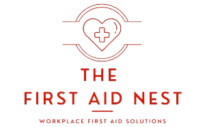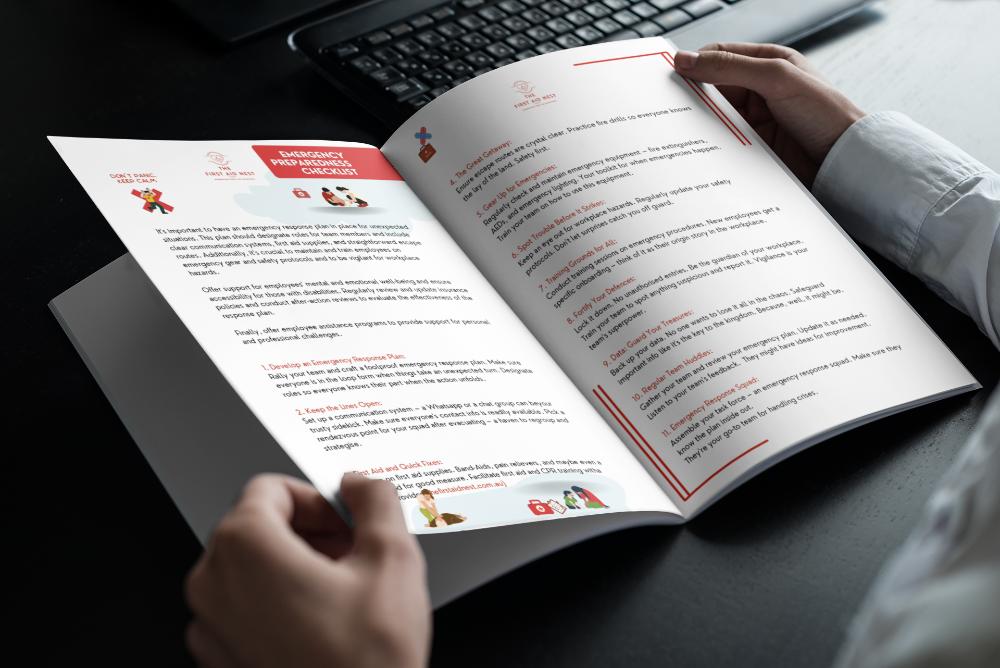My Baby Has A Rash, What Should I Do?

If your baby has a rash, it’s important to figure out what might be causing it. There are many different possible causes of rashes in babies, from reactions to a viral illness, and allergies to infections. In this article, we’ll explore some of the most common causes of rashes in babies and how to treat them.
Heat rash on your baby
If your baby has a rash, it could be a heat rash. Heat rashes are common in babies and usually happen when it’s hot and humid outside. The good news is that heat rashes are usually harmless and go away on their own.
To treat a heat rash, try to keep your baby cool and dry. You can give your baby a cool bath or apply a cool, damp cloth to the affected area. You can also try using over-the-counter hydrocortisone cream to help relieve the itchiness. If the rash comes with any other symptoms of illness, get your child checked by a doctor straight away. If the rash doesn’t go away within a few days or if it seems to be getting worse, also call your doctor.
Why does my baby get a rash?
A rash is a temporary outbreak of red or irritated skin. Rashes are very common in babies and children, and they can have many different causes. Some rashes are caused by skin conditions, while others are the result of an allergic reaction or infection.

Most rashes will eventually go away on their own, but some may require treatment from a doctor. If you’re concerned about a rash on your child’s skin, it’s always best to consult with a pediatrician to get a diagnosis and treatment plan.
What causes baby rashes?
There are many different types of rashes that can affect babies, and the exact cause can sometimes be difficult to determine. However, there are a few common causes of rashes in babies that you should be aware of.
One of the most common causes of rashes in babies is contact dermatitis, which occurs when the skin comes into contact with an irritating substance. Common triggers for this type of rash include certain fabrics, soaps, detergents, or even saliva. If you notice that your baby breaks out in a rash after coming into contact with something new, it’s likely that they have developed contact dermatitis.
Another common cause of rashes in babies is atopic dermatitis, also known as eczema. This condition is often hereditary and results in dry, itchy skin. Babies with atopic dermatitis are especially prone to developing rashes after exposure to certain triggers, such as pollen, pet dander, or dust mites.
Finally, another possible cause of rashes in babies is an infection. Viral infections such as chickenpox or measles can cause a characteristic rash to develop, while bacterial infections may also lead to the formation of a rash. If you suspect that your child is unwell and they have a rash, you must seek medical help immediately. Especially if they are lethargic, have a fever, or not wanting to eat or drink.

How to treat a rash on a baby
If you suspect your baby has a rash, it is important to consult your doctor. If the rash is accompanied by a fever or lethargy, you should seek medical attention immediately. There are many over-the-counter treatments for rashes, but it is always best to speak to a doctor before using any of them on your baby. In most cases, a simple home remedy like applying a cool compress to the affected area can provide relief.
When to see a doctor for a rash on my baby?
If your baby has a rash, it is important to know when to seek medical attention. Some rashes are harmless and will go away on their own, while others can be a sign of a more serious health problem. If your baby has a rash that is accompanied by other symptoms such as fever, vomiting, lethargy or diarrhea, you should see a doctor right away. A rash that does not go away after a few days or gets worse, even if there are no other symptoms, may also be a sign of a more serious condition and should be evaluated by a doctor.
People really worry about the bacterial meningitis rash and how they might miss it. The reality is that the rash often presents very late, and the child had likely actually been deteriorating with more obvious symptoms before the rash presents. So in a nutshell, you will often already know that your child is very unwell and needs medical attention before you see a rash.
There’s a rash on the baby’s face
If your baby has a rash on their face, it can be a sign of an underlying health condition. While most rashes are harmless and will go away on their own, some can be a sign of something more serious. If you’re concerned about a rash on your baby’s face, it’s important to consult with a doctor to rule out any potential problems.

This could just be a rash from milk sitting around the lips and nose after feeding, or it could be a contact reaction from food when they are weaning. They may have baby acne. However, if the symptoms persist, see your GP.
If your baby has a rash, there are a few things you can do to help soothe and heal their skin. First, just keep the skin open to the air if possible and take note of what area the rash covers so that you know if the rash has spread. You could use a mild non-perfumed soap and warm water to bathe your child whilst the rash is present so that you don’t irritate the skin any further. You can apply a thin layer of cream like QV cream to the affected area. If the rash persists, gets worse or is accompanied by any other symptoms, you should consult your child’s doctor.
Where to learn more about concerning symptoms like rashes in your baby,
Our baby first aid courses are available in person in your home and online.
We run classes in your home with groups of 2, 4 or up to 10 in Sydney & Melbourne and you can book in 3 easy steps!
- Pick your class
- Follow the prompts to purchase
- We will contact you within 24 hours to lock in your date of choice
Contact us today with any questions. We cant wait to meet you!
Here are some further resources you might enjoy!
FREE GUIDE: Introducing Common Allergy Foods & Allergic Reactions
Book a baby & child first aid class
Online Baby & Child First Aid

